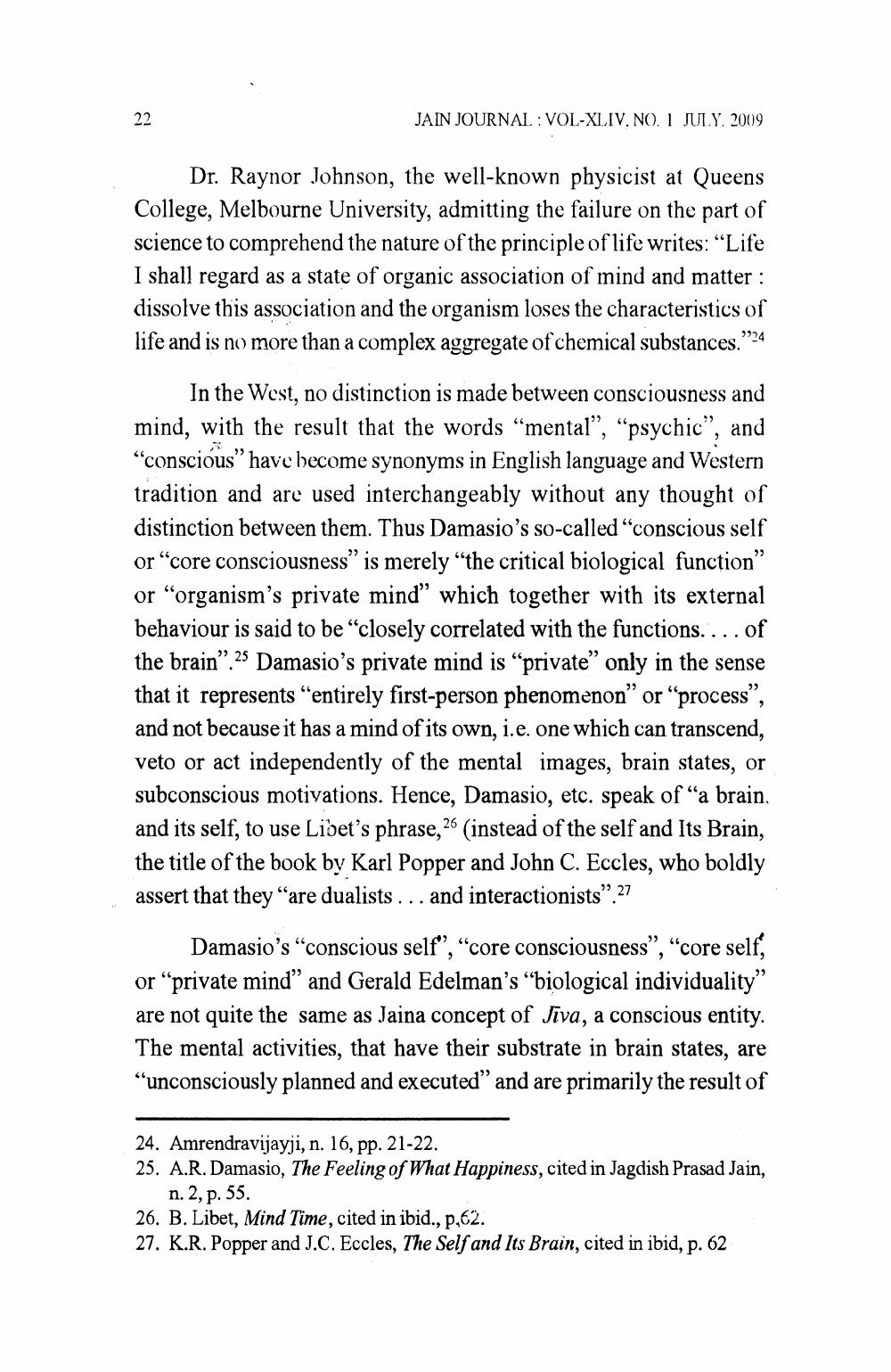________________
22
JAIN JOURNAL VOL-XLIV. NO. 1 JULY, 2009
Dr. Raynor Johnson, the well-known physicist at Queens College, Melbourne University, admitting the failure on the part of science to comprehend the nature of the principle of life writes: "Life I shall regard as a state of organic association of mind and matter: dissolve this association and the organism loses the characteristics of life and is no more than a complex aggregate of chemical substances."24
In the West, no distinction is made between consciousness and mind, with the result that the words "mental", "psychic", and "conscious" have become synonyms in English language and Western tradition and are used interchangeably without any thought of distinction between them. Thus Damasio's so-called "conscious self or "core consciousness" is merely "the critical biological function" or "organism's private mind" which together with its external behaviour is said to be "closely correlated with the functions.... of the brain".25 Damasio's private mind is "private" only in the sense that it represents "entirely first-person phenomenon" or "process", and not because it has a mind of its own, i.e. one which can transcend, veto or act independently of the mental images, brain states, or subconscious motivations. Hence, Damasio, etc. speak of "a brain. and its self, to use Libet's phrase, 26 (instead of the self and Its Brain, the title of the book by Karl Popper and John C. Eccles, who boldly assert that they "are dualists... and interactionists".27
Damasio's "conscious self", "core consciousness", "core self, or "private mind" and Gerald Edelman's "biological individuality" are not quite the same as Jaina concept of Jiva, a conscious entity. The mental activities, that have their substrate in brain states, are "unconsciously planned and executed" and are primarily the result of
24. Amrendravijayji, n. 16, pp. 21-22.
25. A.R. Damasio, The Feeling of What Happiness, cited in Jagdish Prasad Jain, n. 2, p. 55.
26. B. Libet, Mind Time, cited in ibid., p.62.
27. K.R. Popper and J.C. Eccles, The Self and Its Brain, cited in ibid, p. 62




